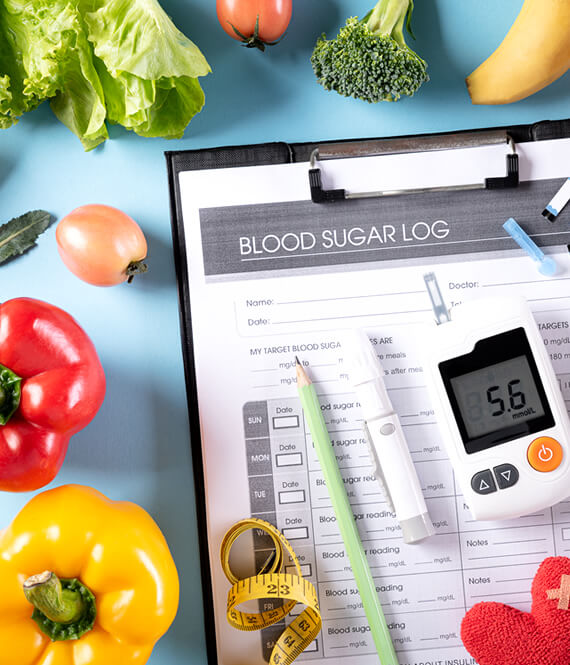
The Diabetes Diet (Type 2): What To Eat And What To Avoid
We recommend helpful products in our articles. Read our full disclosure here. The content on this website is not intended to be a substitute for professional advice, diagnosis, or treatment.
Type 2 diabetes is often thought to occur due to an autoimmune reaction.
However, it can occur at any point, although it is often linked to adulthood.
If you have recently been diagnosed with type 2 diabetes, then you might be struggling to work out what dietary changes you should make.
Eating a balanced diet is important because it is instrumental in managing your blood sugar and your weight.
Keep reading to find out more.
Foods to Include in Type 2 Diabetes Diet
When you have type 2 diabetes, you need to make sure that you are eating foods that are dense in nutrients and that have all of the right vitamins, minerals, and fiber that the body requires. You should be constructing a diet that includes:
- Vegetables;
- Fruits;
- Nuts & Seeds;
- Legumes;
- Whole Grains;
- Protein;
- Healthy Fats.
Foods to Steer Clear Of in Type 2 Diabetes Diet
For the most part, there aren’t necessarily any foods that you should avoid completely if you have type 2 diabetes, but there are foods that should be relegated to occasional treats or indulgences.
As someone with type 2 diabetes, you should be looking to limit the following foods within your diet:
- Sweets;
- Artificial sweeteners;
- Full-fat dairy products;
- Processed foods;
- Fatty cuts of meat;
- Deep-fried foods.
Diet Plans to Try for Diabetes
There are a number of diet plans that you could try to provide more structure to your meal prepping.
For example, some people opt for carb counting, where they closely monitor the number of carbohydrates they consume.
As a result, you can quickly learn how many carbs you need to eat to maintain your blood sugar levels.
Conversely, the keto diet is another popular option, but the keto diet tends to limit carbs and instead focuses on protein and non-starchy vegetables.
Some believe that limiting carbs can help to enhance your ability to manage your blood sugar.
Although there is the potential for increasing your saturated fat intake, which can have the opposite of the desired effect.
Another diet plan that you could follow is the Mediterranean diet. This diet plan tends to emphasize the importance of eating plant-based foods.
It limits red meat while including small amounts of other animal sources of protein.
The Mediterranean diet is high in vitamins and minerals while being low in fats and sugars, which can make it a great option for those with type 2 diabetes.
If you are new to your diagnosis, learning everything you can about the condition can be invaluable.
There are a lot of resources online that you can check out from sources like Air Liquide Healthcare, which has a huge range of informational posts and products.
Understanding your condition is important, so make sure that you have made every effort to do so.
Personalized Diet Plans For Diabetes
For some people, a personalized diet tailored to your specific needs and preferences can be more beneficial than following a generic diet for diabetics because it takes into account your individual nutritional requirements and goals.
By utilizing a diabetes management app, like Klinio, you can track your daily food intake, monitor blood glucose levels, and receive personalized insights and recommendations based on your unique data.
This personalized approach allows for greater flexibility, better adherence to dietary guidelines, and a higher likelihood of achieving and maintaining optimal blood sugar control.
In Conclusion
Obviously, your diet will have a significant effect on your condition, which is why what you choose to eat matters.
However, regardless of the diet that you choose to follow, you need to ensure that you are prioritizing the nutrients that your body needs.
If you are struggling, then you can always seek advice from your doctor.
"We love to research problems, examine studies, analyze solutions, and share with you ideas that make life healthier. You can learn about us and our editorial standards here. Have suggestions or feedback to share? Send us a message!."













Leave a Comment